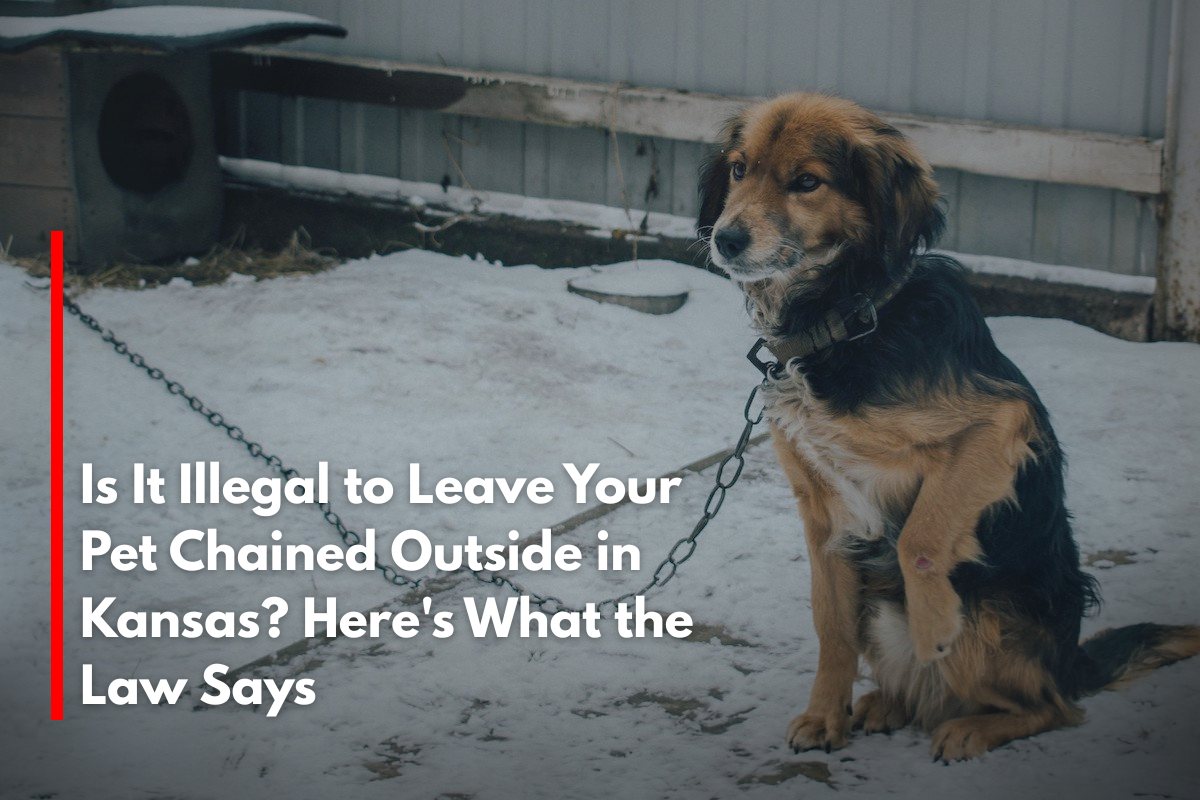In Kansas, the legality of leaving your pet—especially a dog—chained outside depends on both state animal cruelty laws and a complex patchwork of local ordinances. Here’s a comprehensive breakdown of what Kansas law says about chaining pets outdoors in 2025, and what responsible pet owners should know:
State Law: No Statewide Ban, But Cruelty Is Illegal
Kansas does not have a statewide law that outright bans tethering or chaining dogs outdoors. Tethering your pet is generally legal throughout most of the state. However, state law prohibits all forms of animal cruelty—including neglect, abandonment, and deprivation of necessary food, water, or shelter. If leaving an animal chained outside results in harm, neglect, or places the animal in unsafe conditions, you could face prosecution under Kansas’ animal cruelty statutes.
The law explicitly reads:
“Tethering or chaining a dog is legal in Kansas. Somewhat controversially, Kansas does not have restrictions on tethering dogs. This can lead to neglectful situations technically not found to be illegal. However, tethering improperly can still be prosecuted as animal cruelty. For example, a painful tether that’s too heavy for the dog could be viewed as inflicting harm, leading to an animal cruelty charge”.
If an animal is deprived of food, water, shelter, or is injured by chaining, owners may be charged with cruelty or neglect.
Local Ordinances: Cities Are Stricter
Many Kansas cities—such as Wichita, Overland Park, Topeka, and others—have specific ordinances that restrict or outright ban leaving pets chained outside for extended periods or under hazardous conditions. Some examples:
Wichita: It’s illegal to keep a dog chained for more than one hour at a time (and no more than three hours total per day). The tether must be at least 10 feet long, weigh less than 1/8th of the animal’s body weight, and be used with appropriate collars, not choke chains. Violations can result in fines or even jail time.
Overland Park & Topeka: These cities have strict limits on unsupervised tethering, requirements for shelter and water, bans on chaining in extreme weather, and restrictions on chains that could cause injury or entanglement.
Other Towns: Many additional Kansas towns have rules that further limit or regulate chaining, often requiring supervision, access to food/shelter, proper chain length/weight, and bans under certain temperatures or weather warnings.
If you live in a city or town, check the municipal code—local rules may be much stricter than state law.
Owners’ Responsibilities
If you are in an area without a specific tethering ordinance, you are still legally required to ensure your pet:
Dangerous/Exotic Animals: Strict Bans
Kansas law does strictly prohibit chaining outside any “dangerous regulated animal”—such as wolves, large carnivore hybrids, or certain exotics—under any circumstance.
In Summary
Chaining/tethering a pet outside is not illegal statewide in Kansas, but cruelty and neglect are, and local ordinances may strictly limit how and when you can tether a pet.
Long-term, unsupervised, or unsafe tethering can result in criminal penalties, especially if local regulations are violated or the animal suffers.
Always check local laws in your city or county for the most up-to-date and specific rules.
If you’re unsure, err on the side of caution: provide supervision, frequent exercise, shelter, and companionship—ensuring your pet’s safety and well-being above all.
Sources
[1] https://dogtime.com/reference/106550-kansas-animal-cruelty-law-dog-chain
[2] https://www.wichita.gov/DocumentCenter/View/12857/Chaining-PDF
[3] https://www.peta.org/issues/animal-companion-issues/ordinances/overland-park-kansas/
[4] https://www.peta.org/issues/animal-companion-issues/ordinances/topeka-kansas/
[5] https://law.justia.com/codes/kansas/chapter-32/article-13/section-32-1306/











